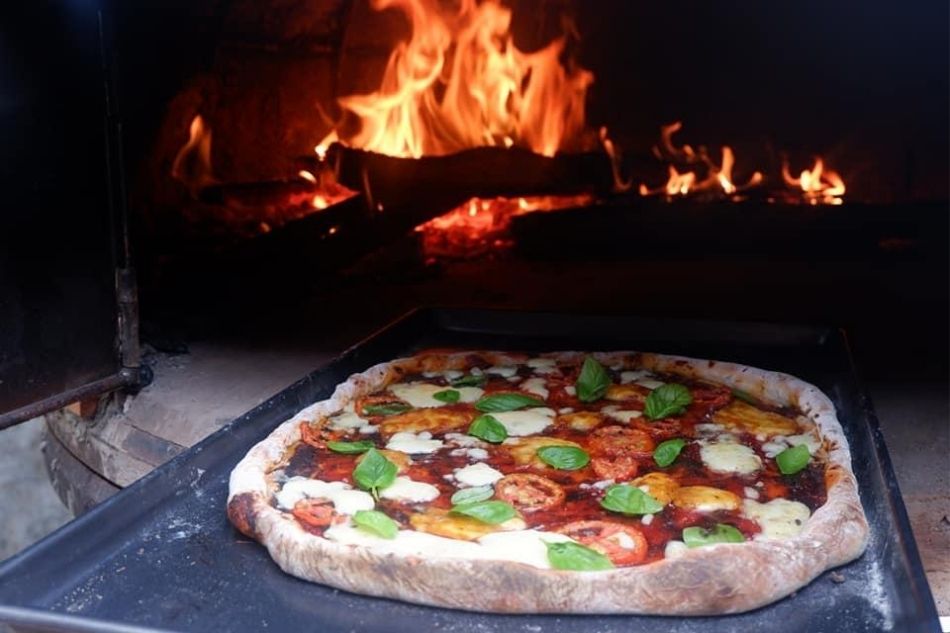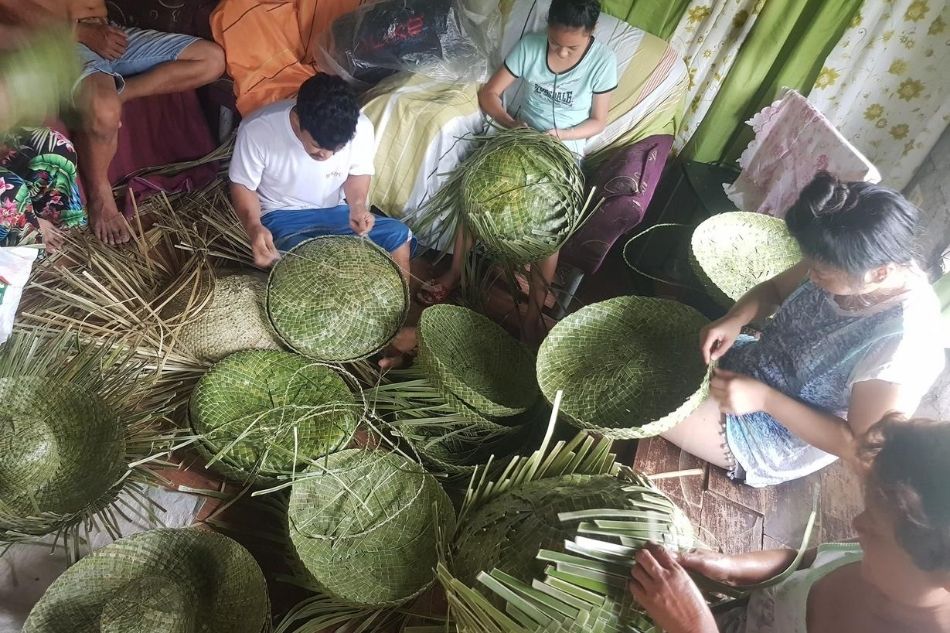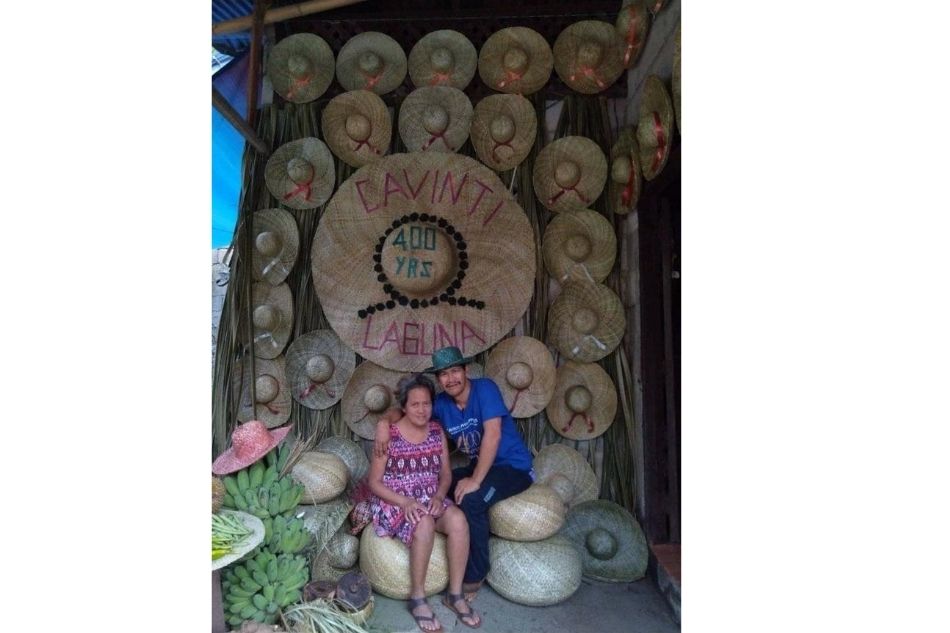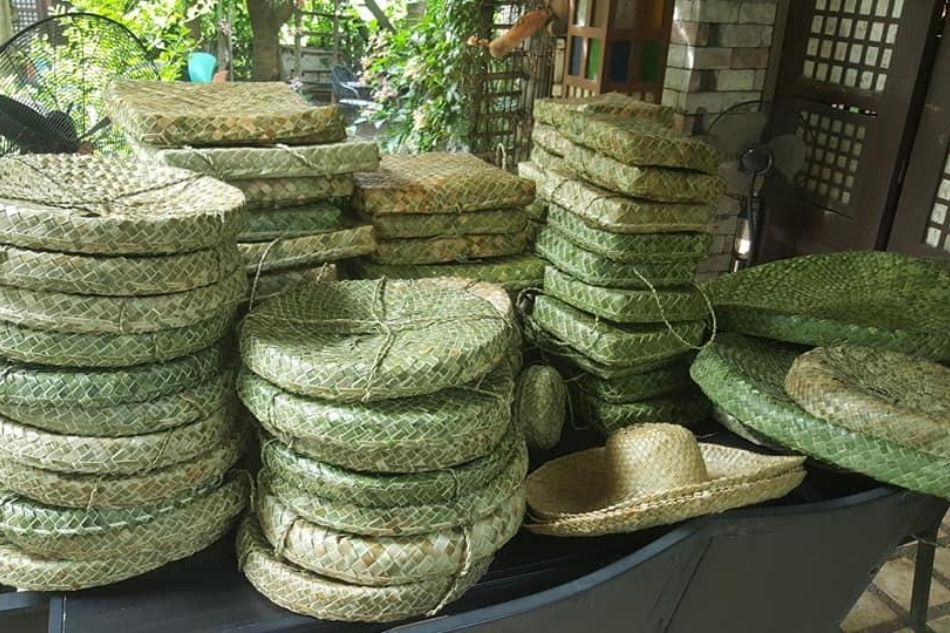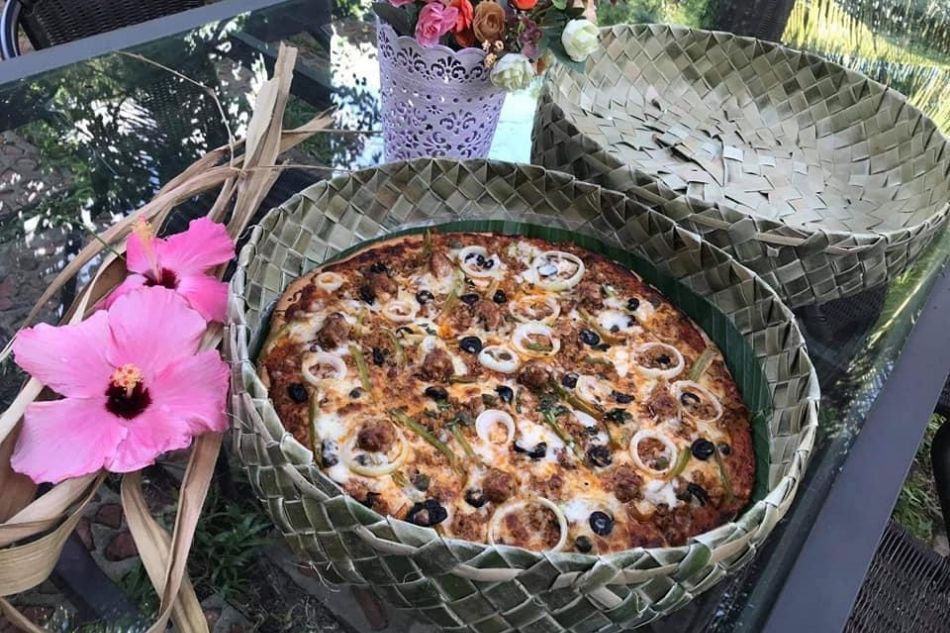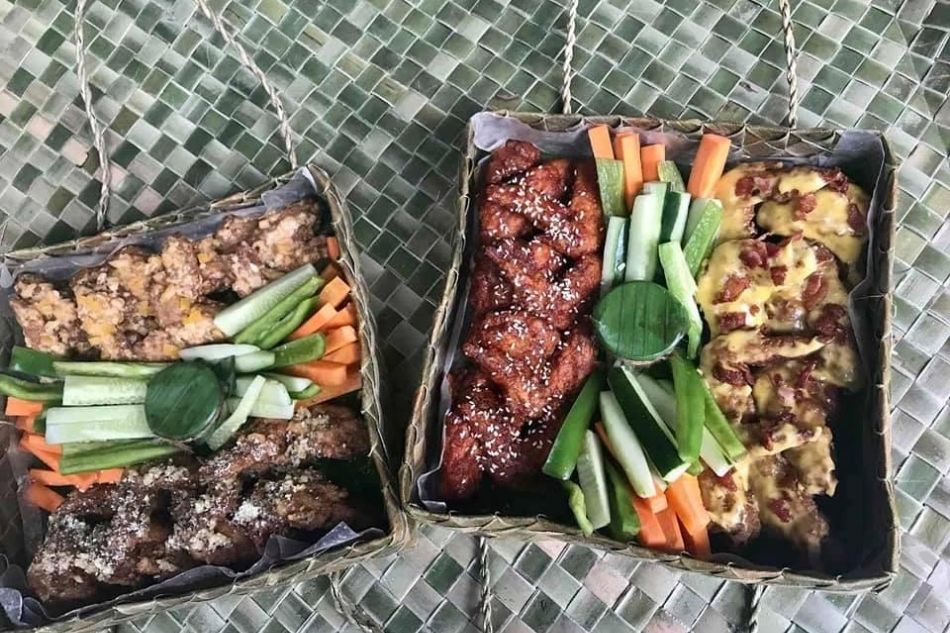How the 'tampipi' pizza box from Laguna became the success story of this pandemic
ADVERTISEMENT
How the 'tampipi' pizza box from Laguna became the success story of this pandemic
NANA OZAETA
Published Aug 20, 2020 09:58 AM PHT
|
Updated Aug 20, 2020 11:38 AM PHT
The old adage may really be true: out of adversity comes opportunity. And while we may not be talking about the cure for the coronavirus or the solution to climate change, one seemingly small innovation borne out of a crisis has brought about success and inspiration even beyond its original intent.
The old adage may really be true: out of adversity comes opportunity. And while we may not be talking about the cure for the coronavirus or the solution to climate change, one seemingly small innovation borne out of a crisis has brought about success and inspiration even beyond its original intent.
It’s all because Dennise Jocel Porca, a licensed architect who set up The BrickOven Café in Pila, Laguna just this May 2020, had a big problem. She found it difficult to source the carton boxes she needed for her pizza from her Metro Manila-based supplier due to the lockdown. So, her solution was as simple as it was creative—use tampipi boxes woven out of pandan leaves instead.
It’s all because Dennise Jocel Porca, a licensed architect who set up The BrickOven Café in Pila, Laguna just this May 2020, had a big problem. She found it difficult to source the carton boxes she needed for her pizza from her Metro Manila-based supplier due to the lockdown. So, her solution was as simple as it was creative—use tampipi boxes woven out of pandan leaves instead.
Soon after Porca posted the boxes on the café’s Facebook page in early July, this ingenious packaging idea became a sensation. The Brick Oven Café got featured in local and even international media, including a very well-received video published by the Hongkong-based South China Morning Post, as well as Waste-Ed and FM 106 in Thailand.
Soon after Porca posted the boxes on the café’s Facebook page in early July, this ingenious packaging idea became a sensation. The Brick Oven Café got featured in local and even international media, including a very well-received video published by the Hongkong-based South China Morning Post, as well as Waste-Ed and FM 106 in Thailand.
ANCX reached out to Dennise Porca to find out how she came up with her now-famous tampipi boxes, only to learn that it was a product borne out of her design background and her family’s longtime eco-friendly sensibility.
ANCX reached out to Dennise Porca to find out how she came up with her now-famous tampipi boxes, only to learn that it was a product borne out of her design background and her family’s longtime eco-friendly sensibility.
ADVERTISEMENT
During the community quarantine, she relates, “Staying at home gave me more time to think and appreciate life in its simplest form.” That simple life meant building a brick oven and making use of scrap wood to cook food. That was the genesis of The BrickOven Café.
During the community quarantine, she relates, “Staying at home gave me more time to think and appreciate life in its simplest form.” That simple life meant building a brick oven and making use of scrap wood to cook food. That was the genesis of The BrickOven Café.
From the start, the café has always been geared towards sustainability, an offshoot perhaps of the family’s business of constructing Antigong Kubo using old wood from demolished houses. “We are inclined to producing eco-friendly and very Filipino designs,” she shares. The café itself is located inside Antigong Kahoy, built from scrap and other excess materials, which used to serve as an events place before the pandemic.
From the start, the café has always been geared towards sustainability, an offshoot perhaps of the family’s business of constructing Antigong Kubo using old wood from demolished houses. “We are inclined to producing eco-friendly and very Filipino designs,” she shares. The café itself is located inside Antigong Kahoy, built from scrap and other excess materials, which used to serve as an events place before the pandemic.
This being her first ever food business, Porca enlisted her brother Dhon Jhon Porca to join the café. A recent culinary school graduate, he used to work as a chef in a hotel in Mandaluyong before the lockdown. Now in charge of the kitchen, he develops dishes cooked out of the brick oven, like lechon belly, lechon ulo, cochinillo, seafood in Cajun sauce, and of course, pizza. Thanks to the brick oven, Porca says, “The juiciness and crispness of the lechon really comes out.” The pizzas also have that distinct taste which her customers appreciate. “I think using firewood in cooking our pizza makes it special because it gives a nice aroma,” she adds.
This being her first ever food business, Porca enlisted her brother Dhon Jhon Porca to join the café. A recent culinary school graduate, he used to work as a chef in a hotel in Mandaluyong before the lockdown. Now in charge of the kitchen, he develops dishes cooked out of the brick oven, like lechon belly, lechon ulo, cochinillo, seafood in Cajun sauce, and of course, pizza. Thanks to the brick oven, Porca says, “The juiciness and crispness of the lechon really comes out.” The pizzas also have that distinct taste which her customers appreciate. “I think using firewood in cooking our pizza makes it special because it gives a nice aroma,” she adds.
The idea of using tampipi came about when Porca was starting to run out of carton boxes. She relates, “Getting supplies in Manila would incur additional expenses and consume time, so we thought that we should find boxes near our area.” She decided to look for alternative sources closer to home and thought of nearby Cavinti, Laguna where the family owns a property. Porca explains, “Pandan leaves are abundant in the place and Cavinti is known for weaving. According to the locals, they grew up knowing how to weave. Most products of Cavinti locals are hats made of pandan leaves which they call sambalilo.”
The idea of using tampipi came about when Porca was starting to run out of carton boxes. She relates, “Getting supplies in Manila would incur additional expenses and consume time, so we thought that we should find boxes near our area.” She decided to look for alternative sources closer to home and thought of nearby Cavinti, Laguna where the family owns a property. Porca explains, “Pandan leaves are abundant in the place and Cavinti is known for weaving. According to the locals, they grew up knowing how to weave. Most products of Cavinti locals are hats made of pandan leaves which they call sambalilo.”
Porca ordered her first tampipi pizza box from weaver Kuya Henry Racoma and his family, which she then used for her father’s birthday in June. While the weavers had never produced a food carrier before, according to Porca, it wasn’t hard for them to adjust to her specifications. Soon enough, by early July, the café was already using the tampipi boxes, available in round and rectangular shapes, to fit their various pizza sizes.
Porca ordered her first tampipi pizza box from weaver Kuya Henry Racoma and his family, which she then used for her father’s birthday in June. While the weavers had never produced a food carrier before, according to Porca, it wasn’t hard for them to adjust to her specifications. Soon enough, by early July, the café was already using the tampipi boxes, available in round and rectangular shapes, to fit their various pizza sizes.
ADVERTISEMENT
While the cost of a tampipi box is higher than that of an ordinary carton box, the advantage is it can be recycled. Customers have the option to return the used tampipi to the café for a 3% discount on their next order. Or they can keep them to use as storage containers, by simply washing and drying them in the sun. However, Porca clarifies that they still carry carton boxes as a packaging option for their customers.
While the cost of a tampipi box is higher than that of an ordinary carton box, the advantage is it can be recycled. Customers have the option to return the used tampipi to the café for a 3% discount on their next order. Or they can keep them to use as storage containers, by simply washing and drying them in the sun. However, Porca clarifies that they still carry carton boxes as a packaging option for their customers.
These tampipi boxes have certainly been a boon for the weavers of Cavinti. The weavers can only make around 10 boxes per day, but due to high demand, Porca has had to reach out to other weaving families in Cavinti. She says, “We are glad that the weaving industry in Cavinti is getting attention and they are now weaving other items aside from hats.”
These tampipi boxes have certainly been a boon for the weavers of Cavinti. The weavers can only make around 10 boxes per day, but due to high demand, Porca has had to reach out to other weaving families in Cavinti. She says, “We are glad that the weaving industry in Cavinti is getting attention and they are now weaving other items aside from hats.”
The tampipi boxes certainly make an impression, beautifully woven, tied with string made from leaves, and with the added touch of fresh flowers that give it a certain rustic charm. When one opens the box, the pizza is still piping hot, with a banana leaf liner underneath in keeping with the nature theme.
The tampipi boxes certainly make an impression, beautifully woven, tied with string made from leaves, and with the added touch of fresh flowers that give it a certain rustic charm. When one opens the box, the pizza is still piping hot, with a banana leaf liner underneath in keeping with the nature theme.
“Ordering our pizza is like a great experience according to [my customers],” relates Porca. “They are able to taste the goodness of our pizza and experience the richness of Filipino culture, and at the same time help the environment.”
“Ordering our pizza is like a great experience according to [my customers],” relates Porca. “They are able to taste the goodness of our pizza and experience the richness of Filipino culture, and at the same time help the environment.”
You may also like:
You may also like:
- From Yakult cakes to Yakult panna cotta: The many ways this childhood drink is invading our food
- Our ube obsession aside, Filipino food has never been more popular than now
- Where to order the best sushi bake in Manila— and other lockdown food trends we went crazy for
- These Kapampangans are bringing the best of Pampanga’s heritage dishes to Manila—for orders
- My honest-to-goodness food order list—for great chicken rice, Indian faves and more
- From Yakult cakes to Yakult panna cotta: The many ways this childhood drink is invading our food
- Our ube obsession aside, Filipino food has never been more popular than now
- Where to order the best sushi bake in Manila— and other lockdown food trends we went crazy for
- These Kapampangans are bringing the best of Pampanga’s heritage dishes to Manila—for orders
- My honest-to-goodness food order list—for great chicken rice, Indian faves and more
The customer response and ensuing media attention have helped Porca further expand the business. She recently introduced new dishes, TampiPakpak and TampiPasta, in their distinctive tampipi carriers. Due to demand, The BrickOven Café now delivers to Metro Manila every Saturday, and is also working out arrangements to deliver regularly to other nearby provinces as well.
The customer response and ensuing media attention have helped Porca further expand the business. She recently introduced new dishes, TampiPakpak and TampiPasta, in their distinctive tampipi carriers. Due to demand, The BrickOven Café now delivers to Metro Manila every Saturday, and is also working out arrangements to deliver regularly to other nearby provinces as well.
ADVERTISEMENT
The impact of one entrepreneur’s idea may be very specific to her locale in Pila, Laguna, but this very local story is certainly resonating not only in the country, but abroad as well. Who knows, in a few months’ time, we’ll be seeing similar weaved products across Asia and even further afield to replace the non-biodegradeable packaging materials currently used for takeout. This one simple tampipi ticks all the boxes in terms of sustainability, preservation of traditional crafts, design innovation, and community development. It’s just one inspiring example of a winning solution borne out a global crisis.
The impact of one entrepreneur’s idea may be very specific to her locale in Pila, Laguna, but this very local story is certainly resonating not only in the country, but abroad as well. Who knows, in a few months’ time, we’ll be seeing similar weaved products across Asia and even further afield to replace the non-biodegradeable packaging materials currently used for takeout. This one simple tampipi ticks all the boxes in terms of sustainability, preservation of traditional crafts, design innovation, and community development. It’s just one inspiring example of a winning solution borne out a global crisis.
Visit The BrickOven Café on Facebook of call (0917) 981-9628
Read More:
ancx
anc-x
ancx.ph
anc
abs-cbn
food and drink
features
the brick oven cafe
Dennise Jocel Porca
laguna
ADVERTISEMENT
ADVERTISEMENT




